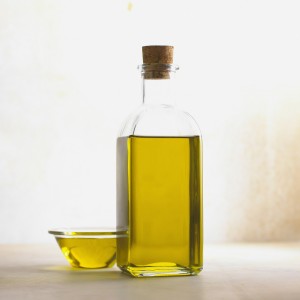High fat diet cholesterol
HIGH FAT DIET – What’s this? HIGH CHOLESTEROL DIET works by lowering intake of dietary fat – true or false? High fat diets like paleo or bullet proof, low carb or Atkins cause cholesterol problems, correct? Not true, entirely. One of the biggest cholesterol myths out there has to do with dietary fat. READ ON AS WE BREAK THIS DOWN…Susannah debunks cholesterol myths.
✗ Trans fats or hydrogenated fats and saturated fats promote abnormal cholesterol, whereas…
✔ Omega-3 fats and monounsaturated fats actually improve the type and quantity of the cholesterol your body produces.
Cholesterol Level – What is cholesterol?
Cholesterol is a fatty substance produced by the liver. The body uses it to help build your cell membranes, the covering of your nerve sheaths, and much of your brain. It’s a key building block for our hormone production: testosterone, oestrogen, progesterone and cortisol.
✔ The biggest source of abnormal cholesterol is sugar and specifically High Fructose Corn Syrup.
✗ “Corn sugar” or High Fructose Corn Syrup HFCS and cane sugar are essentially the same
HFCS and cane sugar are NOT biochemically identical or processed the same way by the body.
“The digestion, absorption, and metabolism of fructose differ from those of glucose. Hepatic metabolism of fructose favors de novo lipogenesis (production of fat in the liver). In addition, unlike glucose, fructose does not stimulate insulin secretion or enhance leptin production. Because insulin and leptin act as key afferent signals in the regulation of food intake and body weight (to control appetite), this suggests that dietary fructose may contribute to increased energy intake and weight gain. Furthermore, calorically sweetened beverages may enhance caloric over-consumption.” (i)
✔ HFCS contains toxic levels of mercury because of chlor-alkali products used in its manufacturing.
✔ Consumption of high fructose corn syrup, which is present in soft drinks or fizzy drinks, many juices, and most processed foods, is the primary nutritional cause of most of the cholesterol issues
✔ Total cholesterol is not as critical as the following:
- Your levels of HDL “good” cholesterol vs. LDL “bad” cholesterol
- Your triglyceride levels
- Your ratio of triglycerides to HDL
- Your ratio of total cholesterol to HDL
✗ Your lipid profile as often requested by your GP will indicate levels of LDL – keeping this in check is enough to keep you off statins e.g. Lipitor
✗ It is not important to know that there are different sizes of cholesterol particles.
✔ There are different sizes of cholesterol particles. There are small and large particles of LDL, HDL, and triglycerides. The most dangerous are the small, dense particles that act like tiny bullets, easily penetrating your arteries. Large, fluffy cholesterol particles are practically harmless–even if your total cholesterol is high. They bounce off the arteries like beach balls and cause no harm.
✔ The risk of arterial plaque is the more accurate heart attack risk assessment
✔ CVD – as with all disease states – can be prevented or targeted treatment can be administered only by determining the cause; examination and assessment of overall health, the interaction of your genes, lifestyle, and environment that ultimately determines your risks — and the outcome of your life. We practice this functional approach here
Rancid or oxidised cholesterol results from oxidative stress and free radicals, which trigger a vicious cycle of inflammation and fat or plaque deposition under the artery walls. [tweetthis]Rancid or oxidised #cholesterol results from oxidative stress and free radicals[/tweetthis] That is the real danger: When small dense LDL particles are oxidised they become dangerous and start the build up of plaque or cholesterol deposits in your arteries.
✔ What is the point in discovering that this is the case by targeted testing if there is no solution? The solution is your Naturopathic Portfolio: Safe, Clinical, Practical, Effective management of this cause or the causes of this type of inflammation. If oxidative stress is a factor then the right antioxidant therapy will play a part – at the right time – in the right way, that is bioavailable and therefore taken up and used by your body to eradicate this issue.
✗ By the time there is inflammation it is too late
✔ As discussed, cardiovascular illness results when key bodily functions go awry, causing inflammation, imbalances in blood sugar and insulin and oxidative stress
✔ We use the science of nutrigenomics, or how food acts as information. This can be used to stall or totally prevent some predisposed disease risks by turning on the right gene messages with our diet and lifestyle choices. That means some of the factors that unbalance bodily health are under your control, or could be given the right test and therefore, treatment.
✗ Diet, nutritional status, stress and activity levels cannot be assessed accurately.
✔ The right tests can reveal problems with a person’s blood sugar and insulin, inflammation level, level of folic acid, clotting factors, hormones, and other bodily systems that affect your risk of cardiovascular disease.
What do we mean by inflammation and how do we reduce it?
We test for inflammation here Cardio C-reactive protein. This is a marker of inflammation in the body that is essential to understand in the context of overall risk. Your C-reactive protein level should be less than 1.
Inflammation can arise from poor diet (too much sugar and trans and saturated fats), a sedentary lifestyle, stress, autoimmune disease, food allergies, food intolerance, hidden infections such as gum disease, and even toxins such as mercury. All of these causal factors need to be considered anytime there is inflammation. We conduct clinical consultation and examinations to evaluate these in order to target your treatment effectively.
Safe, Clinical, Practical, Effective
✗ Cholesterol levels are the best indicator to predict Coronary Heart Disease
✔A major study done at Harvard found that people with high levels of a marker called C-reactive protein (CRP) had higher risks of heart disease than people with high cholesterol. Normal cholesterol levels were NOT protective to those with high CRP. The risks were greatest for those with high levels of both CRP and cholesterol. (ii)
✔ Metabolic Syndrome or Insulin Resistance can be tested and treated to manage pre-diabetes (typically in middle age and in PCOS patients) before full blown DM2 takes over. This can prevent or slowly reverse reliance on blood-sugar regulating medication, commonly Metformin
✔ The side effects of statins have been called to question recently in a research study by the Cleveland Clinic. Problems including muscle pain and weakness have been called to question in this recent study. Statin intolerance is real. (iii)
Elevated levels of a substance called homocysteine (which is related to your body’s levels of folic acid and vitamins B6 and B12) appears to correlate to cardiovascular illness. We measure Homocysteine. Your homocysteine measures your folate status and should be between 6 and 8. Where problematic levels occur, they can be easily addressed by adequate folic acid intake, along with vitamins B6 and B12.
(i) Bray, G.A., Nielsen, S.J., and B.M. Popkin. 2004. Consumption of high-fructose corn syrup in beverages may play a role in the epidemic of obesity. Am J Clin Nutr. 79(4):537-43. Review.
(ii) Ridker PM, Danielson E, Fonseca FA, Genest J, Gotto AM Jr, Kastelein JJ, Koenig W, Libby P, Lorenzatti AJ, MacFadyen JG, Nordestgaard BG, Shepherd J, Willerson JT, Glynn RJ; JUPITER Study Group. Rosuvastatin to prevent vascular events in men and women with elevated C-reactive protein. N Engl J Med. 2008 Nov 20;359(21):2195-207.
(iii) Steven E. Nissen, MD et al Efficacy and Tolerability of Evolocumab vs Ezetimibe in Patients With Muscle-Related Statin Intolerance. JAMA. Published online April 03, 2016. doi:10.1001/jama.2016.3608


